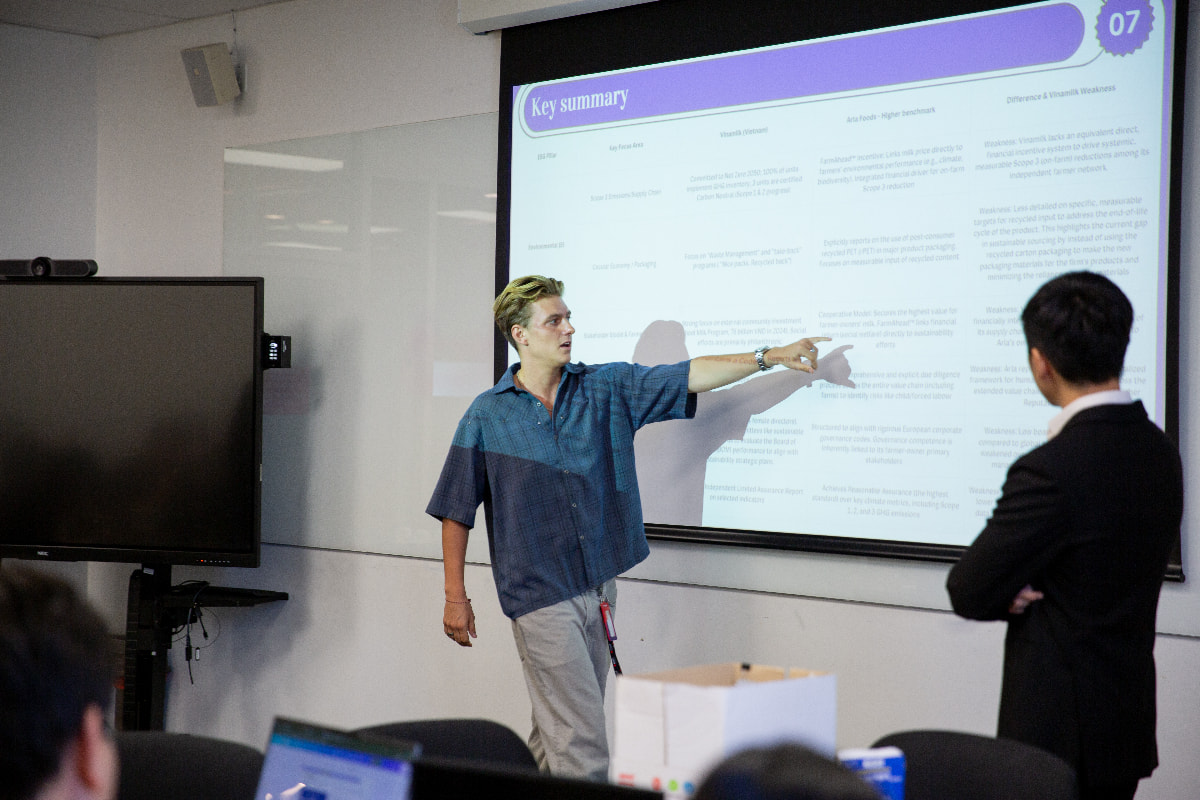How sustainable thinking is reshaping global business at RMIT Vietnam
The “Sustainable International Business Futures” course equips students to lead with purpose – by treating sustainability as a strategic capability, not a side issue.
Turning ideas into action: Digital Entrepreneurship at RMIT
Discover how RMIT’s Digital Entrepreneurship course equips MBA students with the mindset, tools and real-world experience to turn digital ideas into viable ventures whether launching a startup or driving innovation within an existing organisation.
How International Strategy and Innovation prepares you to lead across borders
An integral part of RMIT Vietnam’s Master of International Business program, our International Strategy and Innovation course gives students more than just frameworks. It challenges them to think like global decision-makers, exposing them to the realities of cross-border business with both clarity and context.
From local to global: inside RMIT’s cross-border e-commerce classroom
As global e-commerce reshapes the business world, RMIT students are gaining the tools to lead it. Guided by Dr Bidyut Hazarika, they’re learning how to turn Vietnam’s local innovation into global impact.




